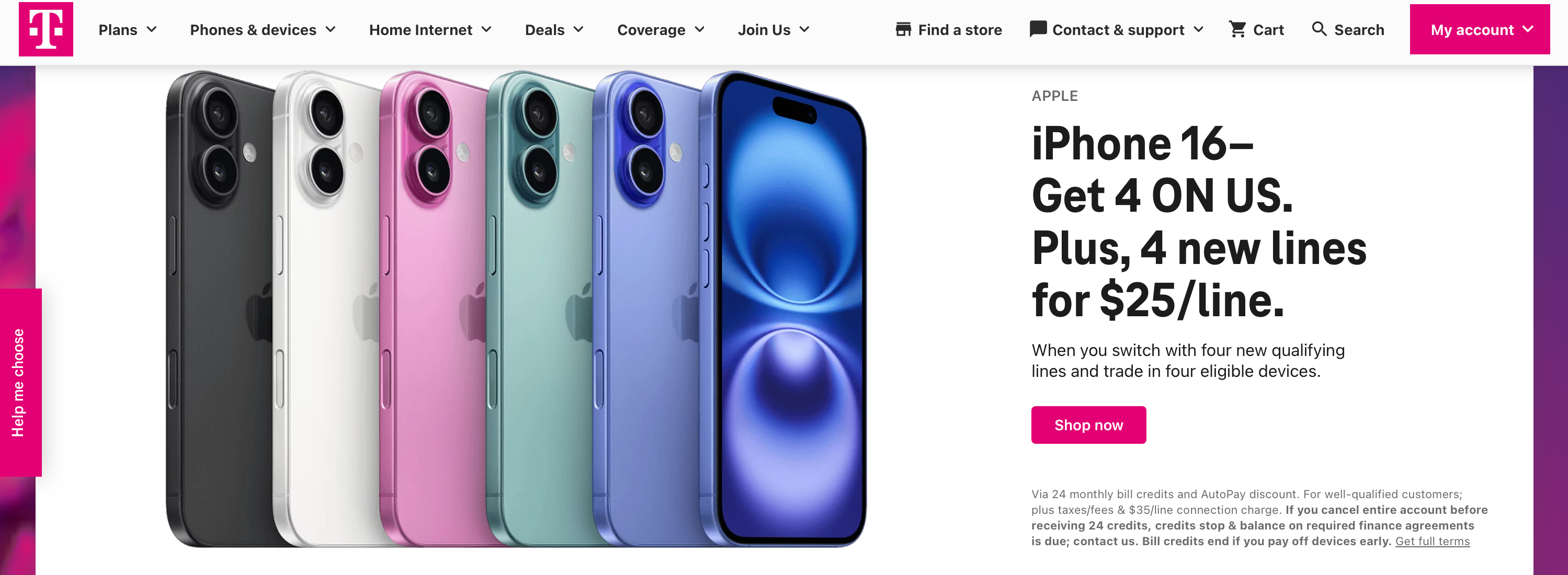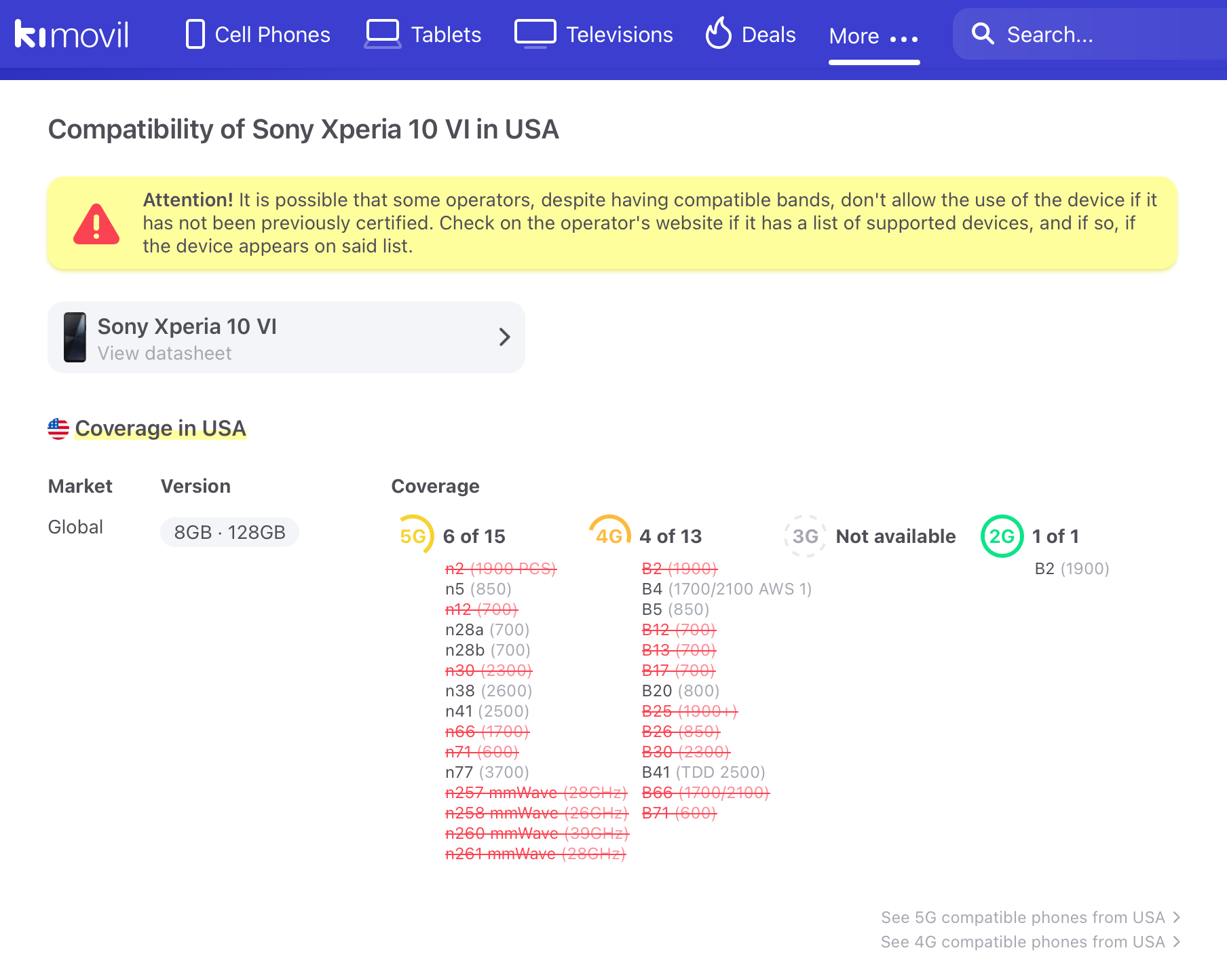Shopping for a new phone can be overwhelming, especially when you see terms like “locked” and “unlocked.” While these may sound like something to do with security, they actually indicate whether you can use the phone with the carrier of your choice. Let’s look at both of these definitions in detail.
Locked: What Does it (Not) Mean?
A “locked” phone, in essence, contains modified software that restricts its cellular connectivity to one carrier. For example, a phone that is locked to T-Mobile won’t connect to the Verizon network, even if a Verizon SIM card has been inserted. However, there are several misconceptions about locked phones that are worth clearing up:
Locked ≠ In a Contract
Your phone’s lock status is not entirely indicative of your service contract. Nowadays, many carriers offer month-to-month plans that can technically be canceled at any time, but the phone itself is on a payment plan. Think of these arrangements like a loan from a bank: you can change banks as you please, but the loan must be paid off at the time of closing the account.
Make sure to read the fine print…
Locked ≠ Fewer Features
A locked phone is identical to its unlocked counterpart in terms of hardware capabilities. The camera, processor, storage, and other specifications are almost always the same. Carrier locks don’t strip away features or performance, but manufacturers may occasionally offer exclusive variants of phones through specific distributors, including carriers.
Locked ≠ Stuck Forever
While a carrier lock does prevent you from freely jumping ship to another provider, it’s not a life sentence. Carriers are legally required to unlock phones once they’re paid off, according to the Federal Communications Commission (FCC). The exact policies vary, but your carrier must provide the unlocking service when you qualify.
One more myth I’ll debunk is the idea that carrier locks provide theft protection. To be fair, a locked phone is less desirable to thieves since its resale value is lower. But modern smartphones have much more effective anti-theft measures built in, like Apple’s Activation Lock and Google’s Factory Reset Protection, that do way more to deter thieves than a carrier lock ever could.
Unlocked Advantages
An “unlocked” phone gives you complete freedom from carrier restrictions. You can insert a SIM card from AT&T, T-Mobile, Verizon, or any other compatible carrier and start using their service right away without any software walls getting in your way.
This freedom offers some obvious advantages. When traveling internationally, you can avoid painful roaming charges by simply buying a local SIM card wherever you land. It’s also great if you like hunting for a great deal, since you can switch carriers whenever a better plan comes along. Plus, unlocked phones typically receive system updates directly from the manufacturer, so your phone won’t be stuck waiting for your carrier to approve and release them.
But there’s a catch: just because a phone is unlocked doesn’t mean it’s guaranteed to work with every carrier. Different networks use different wireless technologies and frequency bands, so your phone needs to support your chosen carrier’s specific setup to function properly. This compatibility issue is especially relevant in the US, where carriers have historically used different wireless technologies. You might find that an unlocked phone works flawlessly on T-Mobile’s network, for example, but lacks the necessary frequency bands to connect to AT&T or Verizon’s network.
Before you buy an unlocked phone, particularly from third-party sellers or international retailers, make sure to check both the model number and network compatibility. Phone manufacturers often release regional versions with different band support; the North American model of a phone might support a completely different set of carriers than its international counterpart. A few minutes spent researching compatibility can save you from the headache of buying a phone that won’t work with your preferred carrier.
Key Considerations
The choice between locked and unlocked goes beyond just carrier freedom. It affects everything from your upfront costs to your long-term flexibility.
On the financial front, carriers often heavily subsidize locked phones, offering enticing discounts or “free” phones if you commit to a long contract or payment plan. With an unlocked phone, these types of deals are rare, if not virtually nonexistent. In other words, you typically have to choose between discounts and flexibility.
Software is another differentiator. Locked phones often come with pre-installed carrier apps, i.e. bloatware, that you can’t remove. Some apps might be useful, but many are redundant and just hog storage space. Unlocked phones, on the other hand, tend to provide a purer software experience and faster updates since the carrier isn’t mucking around with either of them.
Support and warranty coverage can differ, too. Do you have a problem with a locked phone? You’ll likely be working with your carrier, which could mean convenient in-store help but slower warranty claims. Unlocked phones typically get support straight from the manufacturer. However, this is an instance where locked phones might actually have the advantage, as your carrier’s support might be better, depending on the manufacturer.
The Right Choice for You
I think a locked phone makes sense if you’re planning on sticking with the same carrier for a long time and they offer an excellent deal or promotion on the phone. Similarly, if you like being able to count on a local store for support, a locked phone is a sensible idea. It might also be a good idea to go with a locked phone if your intention is to spread the cost of the phone out over time.
On the flip side, unlocked is the way to go if carrier commitment isn’t your style—or phone commitment, for that matter, as you’ll surely prefer to be able to sell or trade-in your phone whenever you want. Also, if you don’t have any desire to have your phone’s apps and software tweaked by a carrier, or you do have a desire to switch carriers during travel or otherwise, an unlocked phone is the clear choice. Of course, this assumes you’re comfortable handling the full cost of the phone upfront.
Whichever route you take, keep in mind that both locked and unlocked variants of a phone are almost always identical. The real impact is on how you’ll pay for your phone and use it over time. It’s like shopping for a car: whether you buy (unlocked phone) or lease (locked phone), knowing your priorities will help you make the smartest choice for your needs and wants, as well as your budget.






